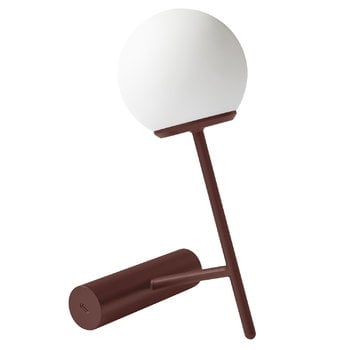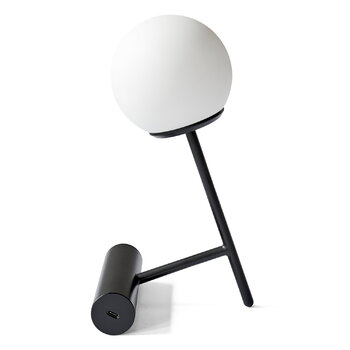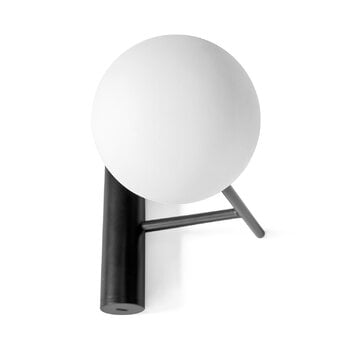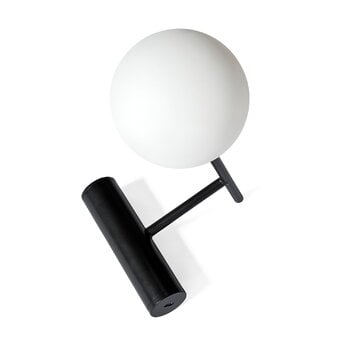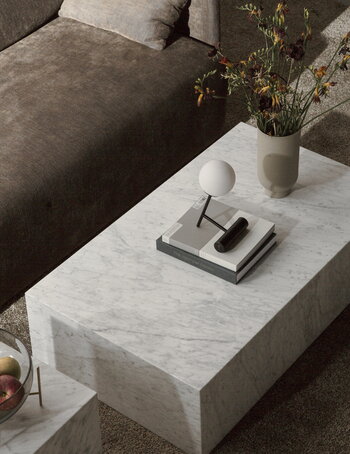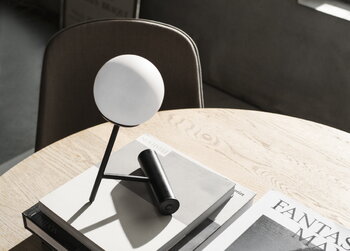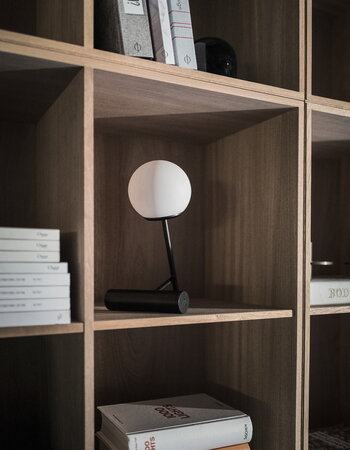Audo Copenhagen’s Phare lamp, designed by Stanislaw Czarnocki, is a cordless, easily portable table lamp whose geometrical design combines a spherical diffuser and diagonal metal base. The built-in LED unit of the Phare lamp is powered by a rechargeable battery, providing a smooth light that diffuses through the opaque shade.
The lamp was originally designed for the apartment no. 50 at Le Corbusier's ‘Cité Radieuse’ in Marseille, and its design reflects the innovative attitude of Marseille’s landmark of modern architecture. The lightweight and versatile Phare lamp can be freely placed or hung inside the house, and also taken out to the garden in dry weather.
